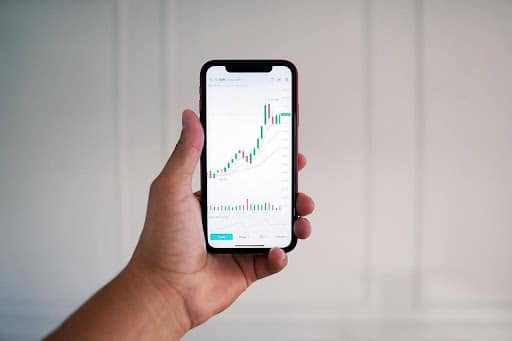The rapid growth of online trading in Kenya has been accompanied by an increased demand for secure platforms to conduct transactions. As the popularity of forex trading app continues to rise, ensuring security remains a critical concern for traders and developers alike. Cybersecurity threats, such as data breaches and account hacks, have made traders wary of the platforms they use. Blockchain-based authentication offers a promising solution to address these challenges, ensuring enhanced security for users of forex trading apps.
The Need for Enhanced Security in Forex Trading Apps
Forex trading apps have revolutionized the trading experience by offering convenience and accessibility. Traders in Kenya, particularly tech-savvy individuals and professionals, rely heavily on these apps to monitor currency trends, execute trades, and analyze market movements. However, the same digital connectivity that makes these platforms efficient also exposes them to significant risks:
- Cyberattacks: Forex apps are attractive targets for hackers due to the sensitive financial data they handle.
- Identity Theft: Without robust authentication mechanisms, traders’ personal and financial information can be compromised.
- Fraudulent Activities: Weak security systems can lead to unauthorized transactions, causing financial losses.
The increasing prevalence of these threats calls for innovative solutions that go beyond traditional security measures.
Understanding Blockchain Technology in Authentication
Blockchain technology, originally developed to power cryptocurrencies, has evolved into a versatile tool for ensuring security across various industries. Its decentralized and immutable nature makes it a powerful option for authentication purposes.
- Decentralization: Unlike centralized systems, blockchain does not rely on a single server to store data. Instead, it distributes information across a network of nodes, making it nearly impossible for hackers to compromise the entire system.
- Immutability: Transactions recorded on a blockchain are permanent and tamper-proof. This ensures the integrity of data, which is critical for authentication processes.
- Smart Contracts: These self-executing contracts automate verification processes, ensuring that only authorized users can access sensitive information.
By integrating blockchain technology, forex trading apps can provide traders in Kenya with a more secure and trustworthy environment.
How Blockchain-Based Authentication Enhances Security
Multi-Factor Authentication (MFA)
Blockchain enables robust multi-factor authentication mechanisms that go beyond traditional username-password combinations. For example:
- Biometric Data Storage: Users’ fingerprints or facial recognition data can be securely stored on the blockchain, ensuring it remains protected from unauthorized access.
- Private Keys: Blockchain generates unique cryptographic keys for each user, which must be verified before granting access to accounts.
Reduced Reliance on Centralized Databases
Centralized databases are vulnerable to single points of failure, such as server outages or hacking attempts. Blockchain’s distributed ledger technology mitigates these risks by storing authentication data across a decentralized network. This enhances reliability and minimizes the likelihood of data breaches.
Enhanced Transparency and Traceability
Every authentication attempt is recorded on the blockchain, creating a transparent log that can be audited in real-time. This traceability allows traders and platform administrators to detect suspicious activities promptly.
Benefits for Kenyan Forex Traders
The integration of blockchain-based authentication in forex trading apps offers numerous benefits tailored to the needs of Kenyan traders:
- Improved Trust: Enhanced security measures boost traders’ confidence in the platforms they use.
- Lower Risk of Fraud: Blockchain’s tamper-proof features ensure that personal and financial data remain secure.
- Regulatory Compliance: Kenya’s regulatory landscape for forex trading is evolving. Blockchain-based systems can help platforms adhere to compliance requirements by maintaining transparent and immutable records.
Case Studies: Blockchain in Action
Several global forex trading platforms have already adopted blockchain technology to enhance security. These case studies demonstrate its effectiveness:
- Platform A: By implementing blockchain for authentication, this platform reduced account hacks by 70% within a year.
- Platform B: Traders reported higher satisfaction levels after the introduction of blockchain-based biometric authentication.
Kenyan forex platforms can draw valuable lessons from these examples to improve their security frameworks.
Challenges of Adopting Blockchain in Forex Apps
Despite its advantages, implementing blockchain-based authentication in forex trading apps is not without challenges:
- Cost: Developing and integrating blockchain solutions can be expensive for app developers.
- Complexity: Educating users and ensuring seamless adoption of new authentication methods require significant effort.
- Regulatory Barriers: Kenyan regulators must develop clear guidelines to govern the use of blockchain technology in financial applications.
Overcoming Barriers to Adoption in Kenya
To address these challenges, stakeholders in Kenya’s forex trading ecosystem must collaborate:
- Government Support: Policymakers should create an enabling environment by developing blockchain-friendly regulations.
- Public Awareness: Educating traders about the benefits of blockchain-based authentication can foster acceptance and trust.
- Partnerships: Collaboration between app developers, blockchain experts, and financial institutions can drive innovation and reduce implementation costs.
The Future of Secure Forex Trading in Kenya
As the forex trading landscape in Kenya continues to grow, the demand for secure and efficient platforms will only increase. Blockchain-based authentication has the potential to redefine how traders interact with forex trading apps, offering unparalleled security and transparency.
Looking ahead, we can expect to see:
- Wider Adoption: More forex platforms integrating blockchain technology to stay competitive.
- Innovative Features: Enhanced authentication options, such as decentralized identity systems.
- Regulatory Advancements: Kenya’s financial regulators embracing blockchain as a standard for secure trading.
Conclusion
Security is a non-negotiable aspect of forex trading apps, especially in a dynamic market like Kenya’s. By leveraging blockchain-based authentication, developers can address traders’ concerns about data breaches and fraud, ensuring a safer trading experience. As blockchain adoption grows, Kenyan forex traders will enjoy greater trust and confidence in the platforms they use, paving the way for a more secure and prosperous trading ecosystem.




